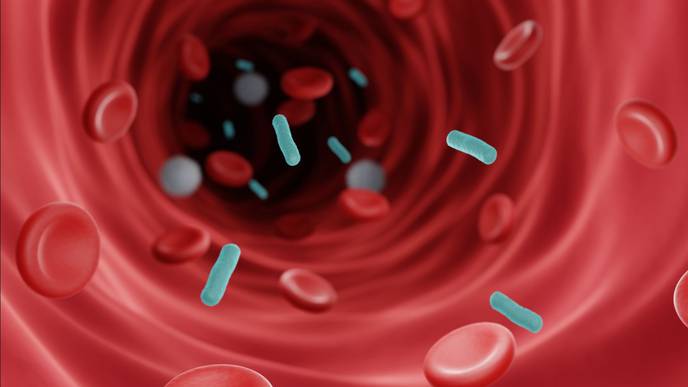ReachMD
Be part of the knowledge.™Hospitalized Sepsis Patients Have High Risk for Acute Kidney Injury

A new study by Yuan-Xia Jiang and team shows that a frequent consequence in septic patients admitted to the ICU is acute kidney injury (AKI), which has hyperuricemia as a separate risk factor. The findings of this study were published in BMC Nephrology.
AKI brought on by sepsis is associated with poor long-term prognosis, such as chronic renal failure, late development of end-stage renal disease, and long-term mortality, as well as short-term mortality. Therefore, the purpose of this study was to look into the relationship between hyperuricemia and acute renal damage in sepsis patients.
The ICUs of the First Affiliated Hospital of Guangxi Medical University and the Second Affiliated Hospital of Guangxi Medical University both treated 634 adult sepsis patients from March 2014 to June 2020 and from January 2017 to June 2020, respectively. Patients were classified into groups with or without hyperuricemia based on the initial serum uric acid level within 24 hours of ICU admission, and the incidence of AKI within seven days of ICU hospitalization was compared between the two groups. The multivariable logistic regression model analysis was utilized to examine the influence of hyperuricemia on sepsis-related AKI in the univariate study.
The key findings of this study were;
1. 163 (25.7%) and 324 (51.5%) of the 634 sepsis patients experienced hyperuricemia and AKI, respectively.
2. With statistically significant differences, the incidence of AKI was 76.7% and 42.3%, respectively, in the groups with and without hyperuricemia.
3. Hyperuricemia was found to be an independent risk factor for AKI in patients with sepsis after correcting for gender, comorbidities (coronary artery disease), organ failure assessment (SOFA) score on the day of admission, baseline renal function, serum lactate, calcitonin, and mean arterial pressure.
4. The incidence of AKI rose by 31.7% for every 1 mg/dL rise in blood uric acid in sepsis patients.
ICU patients with sepsis frequently develop AKI, and hyperuricemia is a unique risk factor for AKI in these patients. AKI in sepsis patients may be prevented by treating hyperuricemia, which may contribute to the pathophysiology of sepsis-related AKI.
Reference:
Jiang, Y.-X., Gong, C.-L., Tang, Y., Yi, Y., Liu, F.-G., Zhou, J.-W., Shi, Y.-L., Zhou, H.-W., & Xie, K.-Q. (2023). Association between hyperuricemia and acute kidney injury in critically ill patients with sepsis. In BMC Nephrology (Vol. 24, Issue 1). Springer Science and Business Media LLC. https://doi.org/10.1186/s12882-023-03129-x
Facebook Comments